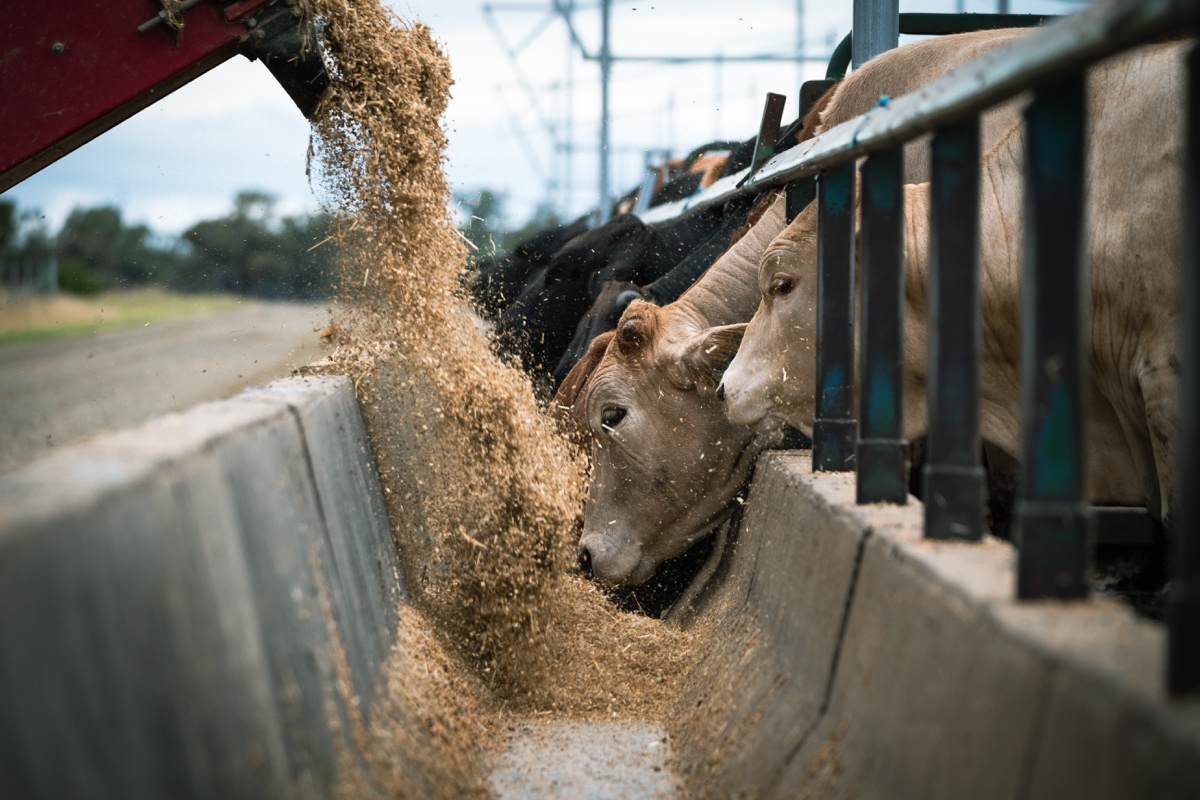The role of ruminant livestock as convertors of waste products into protein is often overlooked in greenhouse gas calculations, UNE livestock nutritionist and modeller Dr Holland Dougherty says. She wants to correct the record.
When Dr Dougherty addresses the first seminar in the 2022 Agritech Futures Series on Friday, 4 March, she will make the point that byproducts from human food and fibre crops make up about a third of livestock diets globally.
“If we didn't have livestock to upcycle these products, we would have to find another use for them,” Dr Dougherty says.
“And for some of these byproducts, there's not many other uses – or if there are other uses, they don't contribute to the human food supply.”
“The sustainability metrics we use don’t tend to capture this symbiosis, where ruminants make it possible to turn waste material into food rather than us losing that material out of the food cycle.”
Dr Dougherty is one of seven speakers who will address Friday’s Agritech Futures seminar, titled Cow in the Room: The role of livestock in managing climate. The event, hosted by UNE’s SMART Region Incubator (UNE SRI), will be held in Armidale at UNE SRI’s new NOVA premises.
Speakers have been asked to address the idea that ruminant livestock, considered to be potent contributors to greenhouse gas production, may also have a role in supporting a manageable climate.
Topics include the greening of the supply chain between AACo and Woolworths, carbon-neutral beef, beef as an efficient protein and the role of technology in making livestock more climate-friendly.
For her part, Dr Dougherty says that the scientific literature is deficient on the subject of “upcycling”. With other UNE scientists, she hopes to launch a research project that will correct the deficiency.
“Across the world, we use livestock to clean up our messes,” she says. “For every 100 kilograms of food we produce, about 37 kilos of byproducts are produced that can be fed to livestock – and that’s exactly what farmers tend to do.”
“What would happen to the numbers if livestock were not there, converting crop waste to protein? If that material was actually wasted, or used outside our food supply? What would be the greenhouse gas penalty of producing more food to replace that protein we now grow on crop byproducts?”
“We still need more of a big-picture perspective on the role of livestock. I think it’s really vital that we get that information, both to better understand our food production systems, and to guide policy around climate change.”
Other speakers at the Agritech Futures event will consider the role of ruminant livestock from different angles.
Friday’s program, starting at 11am and concluding at 1pm, includes:
Dr Annette Cowie, Senior Principal Research Scientist, Climate at NSW DPI, and IPCC author: Setting the scene - livestock as a manager for climate; why it matters, why now, why act.
Dr Holland Dougherty, Research Fellow, UNE: Challenging the narrative with the evidence of livestock as upcyclers.
Dr David Lamb, Chief Scientist, Food Agility CRC: Finding the Tech, the business and the people.
Anna Speer, Managing Director at Greenstock – Australian Meat - Woolworths: Sustainable Protein - AACo to WOW
Dr Sonya Dominik, Sustainability and Welfare Research Group Leader, CSIRO: Can Australian beef production systems achieve carbon neutrality by 2030?
Dr Margaret Jewell, Carbon Neutral 2030 Manager, MLA: MLA’s Roadmap.
Dr Peter McGilchrist, Meat Scientist, UNE: Eating Meat – an efficient protein.
The four-part 2022 Agritech Futures Series, delivered by UNE SRI, is sponsored by InAg.Tech with support from the NSW and Commonwealth Government. The series is intended to provoke questions, promote connections, and share the information and knowledge necessary to build strong regional futures. Book here


